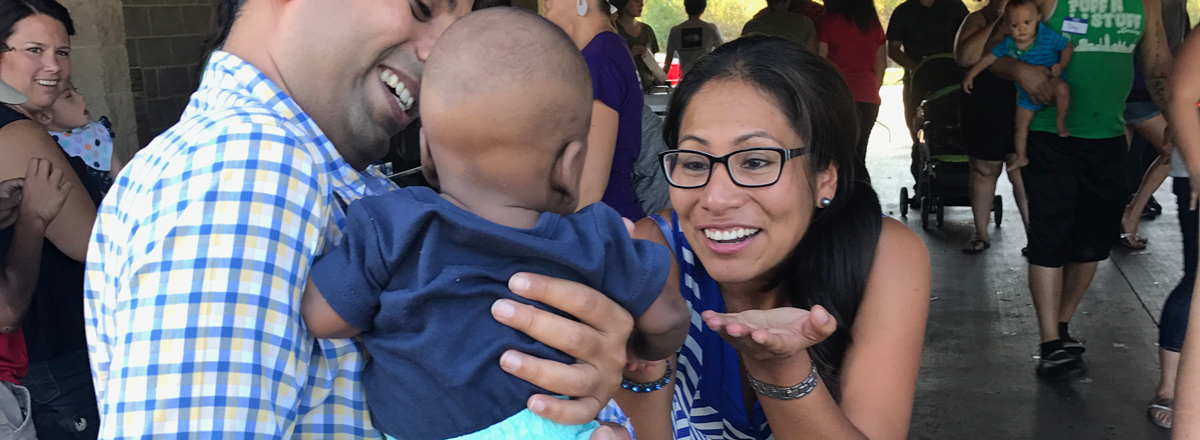OUTPATIENT ROTATION:

DEVELOPMENTAL ASSESSMENT CLINIC
Neonatal fellow acquires outpatient follow-up experience in the Developmental Assessment Clinic (DAC). This is a multidisciplinary outpatient clinic that performs developmental screening evaluations on high-risk infants discharged from the Regional Neonatal Intensive Care Unit (RNICU) to ensure early identification of cognitive, motor, behavioral, or social developmental deficits.
The clinic team includes a Neonatalogist, a Child Psychologist, a Physical Therapist, and a Pediatric Nurse. The children have their hearing evaluated at the Audiology Clinic located in the same building prior to their visit to the DAC.
OBJECTIVES AND GOALS FOR OUTPATIENT CLINIC
YEAR 1
| Know the indications for referral to the DAC [MK, PC, SBL] |
| Early in the 1st year, the Fellow must watch a CD on the performance and scoring of the Denver Developmental Screening Scale /tests for infants. The fellows watch a demonstration of the test by Faculty or Child Psychologist [MK, PC]. |
| The Fellows must demonstrate competence on the Bayley III exam at the 6 and 18-month level. [MK, PC, PBLI]. |
| The Fellow should know the basic primitive reflexes and when they should disappear [MK]. |
| Fellows must observe the Child Psychologist perform the Bailey III test on children more than 1year old’ (12, 24, 36 months) to get a sense of the various components of and the scoring of the test [MK, ICS]. |
| The fellow learns to obtain an interval medical history from the child’s parent(s) or legal guardian(s) [ICS, PC, P]. |
| Fellows must become familiar with the resources available to families with developmentally delayed children in Michigan (Early On) [SBP]. |
| Fellows should become familiar with web-based resources available to families with developmentally challenged children (support group; information websites, etc.)[SBP, PC]. |
| Under the supervision of the Attending staff, the fellow must be able to formulate a plan for referral to community rehabilitation services and/or subsequent follow-up in DAC [PC, P, ICS, SBP]. |
| Fellows should know the indications for, and the interpretation of, audiologic testing in high-risk newborns [MK, PC]. |
YEAR 2
| Fellows should become familiar with literature on neonatal follow-up results [MK, PBLI]. |
| Fellows should understand the correct research principles involves in designing and understanding a follow-up portion of an interventional trial [MK PBLI]. |
| The fellow must be able to formulate a follow-up plan with little supervision. [PC, P, ICS, SBP]. |
| Fellows should become familiar with various tests (including those not used in our clinic) for evaluating an infant’s progress [MK]. |
| Fellows should become more familiar with long-term follow-up resources (Head Start, school-based resources) [PC, SBP, ICS, P]. |
YEAR 3
| Fellows should become Preceptors for medical students and residents rotating through the Developmental Assessment Clinic [P, ICS]. |
| Trainees should be able to function in a leadership role in the clinic [P, ICS]. |
